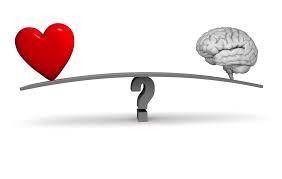 My daughter asked my opinion about an essay in the New York Times, by philosophy professor Stephen Asma, titled, “What Religion Gives Us (That Science Can’t).” (Here’s a link.) Asma says he’s not religious, but argues that we still need religion.
My daughter asked my opinion about an essay in the New York Times, by philosophy professor Stephen Asma, titled, “What Religion Gives Us (That Science Can’t).” (Here’s a link.) Asma says he’s not religious, but argues that we still need religion.
He starts with a story about a woman whose son was killed. She was shattered, and “suffered a mental breakdown.” But what saved her, enabling her to “soldier on” to raise her remaining kids was (guess what) religion, including belief that she’d see her dead son again in Heaven.
Asma calls that irrational; but says “its irrationality does not render it unacceptable, valueless or cowardly. Its irrationality may even be the source of its power.” (I’ve seen people say they have faith not in spite of its irrationality, but because of it.)

But drawing such a clear line between emotion and reason is a fundamental mistake. Asma cites neuroscientist Antonio Damasio, yet the one thing Damasio is famous for is the idea that reason and emotion are actually inextricably intertwined. You can’t separate them. Indeed, patients who suffered brain lesions that did separate them had disastrous results, because it is emotion that provides the motivation for reasoning.
And what exactly does Asma mean by “direct access to this emotional life?” Simply that people can be more emotive about God and Heaven than pondering theories of evolution or relativity? Well, so what?
Asma’s is hardly a startling new argument. It’s a very old and lame apologia dressed up with a lot of neuroscience and psychology jargon. It’s a utilitarian argument: that religion is useful because it works in soothing the existential dis-ease that life entails; truth or falsehood is immaterial. In fact, Asma actually calls the “emotional management” provided by religious belief “healthy.” He even likens religion to pharmaceutical pain management remedies.

But is this a reason to choose a religious belief? Remember that what one believes is, nominally at least, a choice. We don’t have beliefs pre-installed like software; we develop them ourselves based on what we’re taught, what we learn, what we experience. At the end of the day, does it make sense to say to oneself, “this isn’t true, but I’ll believe it anyway because it will make me feel good?”
My basic answer is this. One cannot engage authentically and meaningfully with life and the world while laboring under false concepts about their essential reality.

Meantime, most people who believe in an eternal paradise are in no hurry to go, and try to remain on Earth as long as possible. What’s up with that? “Belief” is a tricky concept. What people think they believe and what they actually believe can differ. You may persuade yourself you believe in Heaven — but another part of your brain is not on board. (As Mark Twain said, “faith is believing what you know ain’t so.”)
I consider it mentally healthy to avoid such cognitive dissonance. To have all parts of one’s mind on the same page.

Indeed, if people really and truly believed in God, most would behave very differently. That belief seems to govern their lives only about 10%. But then you do get some people at the 100% level. And that’s a peck of trouble.

That “religion” would be an expression of the emotion I feel about what I have referred to as the essential nature of life and the world. The science that Asma disparages as some seemingly cold dispassionate construct is part of it; contemplating it gives me very profound feelings about what I call the human project. 
